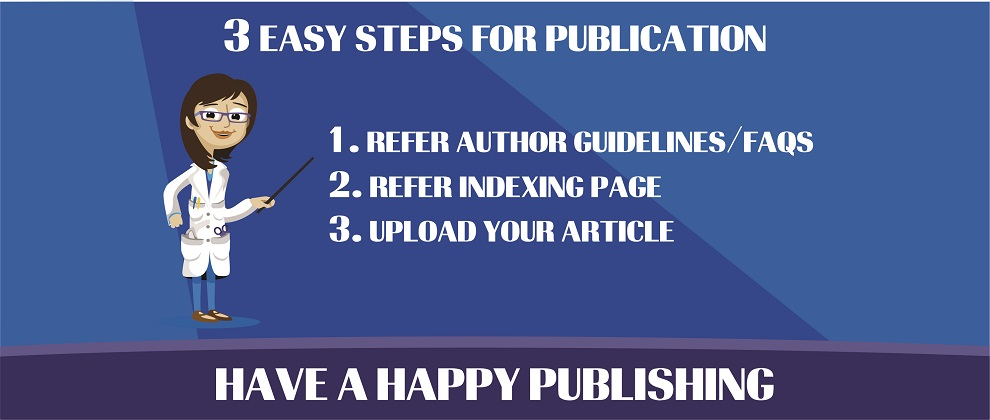Volume : 5, Issue : 12, December - 2016
A Randomised controlled study comparing flush ligation to steam ablation for great saphenous varicose veins.
Dr. Chandrashekar. S, Dr. Suraj. J
Abstract :
<p> <b><u><span style="font-size:18.0pt;line-height:115%;font-family:"Times New Roman",serif">Background:</span></u></b></p> <p class="MsoNormal"><span style="font-size:14.0pt;line-height:115%;font-family: "Times New Roman",serif">The aim was to compare Flush ligation and endovenous steam ablation (EVSA) for great saphenous varicose veins .<o:p></o:p></span></p> <p class="MsoNormal"><b><u><span style="font-size:20.0pt;line-height:115%;font-family:"Times New Roman",serif"> </span></u></b><b><u><span style="font-size:18.0pt;line-height:115%;font-family:"Times New Roman",serif">Methods</span></u></b><b><u><span style="font-size:20.0pt; line-height:115%;font-family:"Times New Roman",serif">:<o:p></o:p></span></u></b></p> <p class="MsoNormal"> <span style="font-size:14.0pt;line-height:115%;font-family:"Times New Roman",serif">Patients with primary great saphenous vein reflux were randomized to undergo Flush ligation or EVSA . Primary outcomes were treatment success (vein obliteration) at 52 weeks, and Venous Clinical Severity Score (VCSS) at 12 weeks. Secondary outcomes were pain, satisfaction with treatment, duration of analgesia use and days lost from daily activities, changes in Aberdeen Varicose Vein Questionnaire (AVVQ) and scores after 12 weeks, and complications at 2 and 12 weeks.<o:p></o:p></span></p> <p class="MsoNormal"><b><u><span style="font-size:18.0pt;line-height:115%;font-family:"Times New Roman",serif"> Results</span></u></b><b><u><span style="font-size:20.0pt;line-height:115%;font-family:"Times New Roman",serif">:<o:p></o:p></span></u></b></p> <p class="MsoNormal"> <span style="font-size:14.0pt;line-height:115%;font-family:"Times New Roman",serif">A total of 227 legs were treated (EVSA, 117; Flush ligation, 110). At 1 year, the treatment success rate after high-dose EVSA was not inferior to that of Flush ligation: 92 (95 per cent confidence interval (c.i.) 86 to 98) versus 96 (92 to 100) per cent respectively. Changes in VCSS after 12 weeks were similar: −2</span><span style="font-size:14.0pt;line-height:115%;font-family:"Camia Math",serif; mso-ascii-font-family:"Times New Roman";mso-bidi-font-family:"Times New Roman"">⋅</span><span style="font-size:14.0pt;line-height:115%;font-family:"Times New Roman",serif">69 (95 per cent c.i. −2</span><span style="font-size:14.0pt;line-height:115%; font-family:"Camia Math",serif;mso-ascii-font-family:"Times New Roman"; mso-bidi-font-family:"Times New Roman"">⋅</span><span style="font-size:14.0pt; line-height:115%;font-family:"Times New Roman",serif">34 to −3</span><span style="font-size:14.0pt;line-height:115%;font-family:"Camia Math",serif; mso-ascii-font-family:"Times New Roman";mso-bidi-font-family:"Times New Roman"">⋅</span><span style="font-size:14.0pt;line-height:115%;font-family:"Times New Roman",serif">04) and −2</span><span style="font-size:14.0pt;line-height:115%;font-family:"Camia Math",serif; mso-ascii-font-family:"Times New Roman";mso-bidi-font-family:"Times New Roman"">⋅</span><span style="font-size:14.0pt;line-height:115%;font-family:"Times New Roman",serif">51 (−2</span><span style="font-size:14.0pt;line-height:115%;font-family:"Camia Math",serif; mso-ascii-font-family:"Times New Roman";mso-bidi-font-family:"Times New Roman"">⋅</span><span style="font-size:14.0pt;line-height:115%;font-family:"Times New Roman",serif">10 to −2</span><span style="font-size:14.0pt;line-height:115%;font-family:"Camia Math",serif; mso-ascii-font-family:"Times New Roman";mso-bidi-font-family:"Times New Roman"">⋅</span><span style="font-size:14.0pt;line-height:115%;font-family:"Times New Roman",serif">93). AVVQ scores improved equally 12 weeks after both treatments. Patients treated with EVSA reported less post procedural pain, fewer days of analgesia use, were more satisfied with therapy, and had a shorter convalescence. Complication rates were comparable.<o:p></o:p></span></p> <p class="MsoNormal"> <b><u><span style="font-size:20.0pt;line-height:115%;font-family:"Times New Roman",serif">Conclusion: <o:p></o:p></span></u></b></p> <p class="MsoNormal"><span style="font-size:14.0pt;line-height:115%;font-family: "Times New Roman",serif">The 1-year treatment success of high-dose EVSA was not inferior to that of Flush ligation. Several secondary outcomes were in favour of EVSA.<o:p></o:p></span></p>
Keywords :
Cite This Article:
DR.CHANDRASHEKAR.S, DR.SURAJ. J, A Randomised controlled study comparing flush ligation to steam ablation for great saphenous varicose veins., Global Journal For Research Analysis,Volume : 5 | Issue : 12 | December 2016


 MENU
MENU

 MENU
MENU

